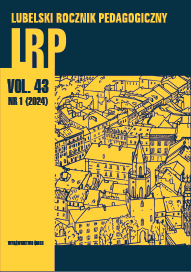SAMOOCENA A POCZUCIE SAMOTNOŚCI MŁODYCH
DOROSŁYCH
SELF-ESTEEM AND THE SENSE OF LONELINESS IN YOUNG ADULTS
Author(s): Joanna WrótniakSubject(s): Social psychology and group interaction, Personality Psychology, Psychology of Self
Published by: Wydawnictwo Naukowe Uniwersytetu Marii Curie-Sklodowskiej
Keywords: sense of loneliness; self-esteem; youth; young adulthood;
Summary/Abstract: Introduction: The rapidly-growing sense of loneliness should be regarded as one of the key challenges of the modern world, which we cannot approach with negligence. How young peo-ple cope with loneliness, and how they experience and perceive it, strongly depends on theirsubjective perception of themselves, their self-esteem and self-concept.Research Aim: This paper presents the author’s own study which was aimed at analysing therelationship between self-esteem and the sense of loneliness among young adults. The studyinvolved 314 people aged between 18 and 33.Method: The diagnostic survey method was used along with the following research tools: theRosenberg Self-Esteem Scale (SES), and the Revised R-Scale ‒ UCLA.Results: The average global self-esteem score was M = 27.7, out of 40 points possible, with theminimum score of 10 points. The results of the study reveal that nearly 50% of the respondentsare characterised by very low or low self-esteem (154 respondents). More than 20% of the re-spondents (69 people) represent an average level of self-esteem, while high and very high levelsof self-esteem are reported by nearly 30% of the respondents (91 people). The average overallscore for the analyses of the sense of loneliness among young adults was M = 41, out of 80 pointspossible, with the minimum score of 20 points. As regards individual aspects of the sense ofloneliness, the scores ranked low or average. The analyses performed in the study reveal thatthere is a negative correlation between the variables analysed, meaning that higher levels ofself-esteem are accompanied by a lower sense of loneliness among young adults.Conclusion: The results of this study provide an important premise for undertaking preventiveand therapeutic interventions aimed at young adults, to prevent and reduce their levels of per-ceived loneliness.
Journal: Lubelski Rocznik Pedagogiczny
- Issue Year: 43/2024
- Issue No: 1
- Page Range: 107-124
- Page Count: 18
- Language: Polish

